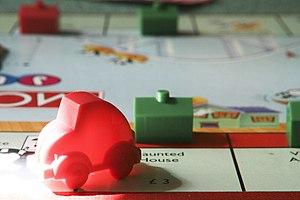It’s hard to know your kids.
We live in a world of constant distraction. Working full time, chasing the kids to whatever activities they’re enrolled in, play-dates, and other commitments all conspire to chase you away from the one thing that truly matters: your family. It’s not enough to be merely present, you have to be engaged.
How can you carve some time out of your hectic schedule to spend time that your kids will never forget?
We play a lot of games in my family and we start far younger than the recommended ages on any of the games we own. I taught my oldest kid to play chess when he was 4 and he caught on well enough to teach his grandmother within a few months. If a game doesn’t require reading, the recommended age is complete fiction. A two-year-old can count, so Sorry! is a good game. 5-year-olds can add, so Monopoly is a good choice that reinforces math skills.
To keep it fun, we have a few generic rules for playing games.
1. We play for blood. Nobody gets to win a game without earning it. It took my son 5 years to beat me in a game of chess. Two years later, he’s still bragging about it.
2. Losers don’t cry. Sportsmanship is important. It’s no fun to play with someone who throws a tantrum for losing. My son’s friends learned that lesson in a hurry.
3. If you’re not a good winner, you won’t play the next game. We talk a little smack when we play, but it’s only in fun. When someone gets mean, their gaming privileges get suspended.
4. The TV is off. We don’t need more distractions. No TV, no texting, no phone, no nothing. Game time is about family time, not about letting the outside world in. Guard this time with your life. I even hesitate to bring in other friends.
5. Video games don’t count. You get far less interaction when you’re staring at a screen. The goal is to have a good conversation while you’re playing and really get to know your family. You can’t do that when the only words coming out of your mouth are “Ack! Zombie Nazis! Shoot him!”
Board games and card games are relatively inexpensive. Settlers of Catan costs less than a trip to the movies. The games don’t wear out quickly, though we are on our third copy of Phase 10. For the price and the time, you don’t have any excuses.
How do you spend time with your kids?





